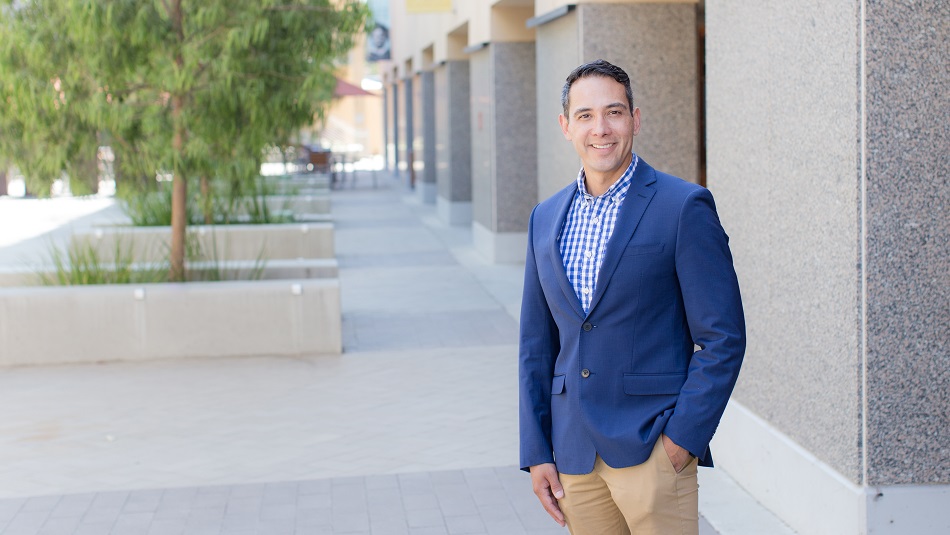
How climate change policy affects environmental justice is the focus of Michael Méndez’ research.
Méndez, who has joined the School of Social Ecology as an assistant professor of urban planning and public policy, is studying environmental policy, planning and climate change issues, focusing on the impacts to low-income communities and communities of color.
“I’m looking at how social movements are responding to climate change impacts,” he says. “Specifically, I’m looking at how activist or advocacy groups are organizing to look for solutions to address urban environmental problems that affect community well-being as well as public health.”
In his forthcoming book, “Climate Change from the Streets: How Conflict and Collaboration Strengthen the Environmental Justice Movement,” which is scheduled to be published by Yale University Press in 2020, Méndez argues that for society to successfully resolve the phenomenon of climate change, “critical attention must be placed on the cultural and human dimensions of climate policy.”
The book points to the California perspective.
“California is not just a national leader but a global leader looking at mitigation and adaptation policies around climate change,” he says. “I look at how environmental justice groups in communities of color, who are suffering the worst from climate change with things like air pollution and greenhouse gas emissions, are working to address some of the needs.”
Méndez notes that environmental protection and improving public health are inextricably linked and maintaining that link is key to advancing future climate action policies.
His book includes his own observations that he gathered while working on public policy as an advisor, senior legislative consultant, and lobbyist, and as a gubernatorial appointee during the passage of California’s climate change laws.
Early praise for “Climate Change from the Streets” includes this review by Bill Mckibben, author of “Falter: Has the Human Game Begun to Play Itself Out?”
“A crucial addition to the climate change literature. Avoiding the normal view-from-on-high, Méndez gets down into the nitty-gritty of environmental justice campaigning, with all its tradeoffs, frustrations, and hard-won successes.”
Méndez notes on his website that he “gained valuable insight into ways in which governments, businesses and nongovernmental organizations interact to shape climate policy. My connections with environmental justice groups helped me understand how community and public health benefits can be more effectively integrated with global climate policy. While most scholarship in the field of environmental politics has focused on elite actors, my research provides a more nuanced analysis of the influence of environmental justice activists in transforming climate policies. My book amplifies their efforts and voices, which have largely been ignored in the narrative of global leadership on climate change.”
Méndez was born and raised in a northeast neighborhood in the San Fernando Valley, a place that confronted the environmental justice issues he now studies.
“I grew up questioning why the neighborhood I lived in looked really different from other parts of suburbia,” he says. “So that led me to urban planning, which is a great intersection between the political process, the environmental process and the social process.”
He calls UCI and the School of Social Ecology an “amazing” place to be for its emphasis on interdisciplinary research and for “being at the forefront of understanding how the social and political systems intersect.”
Méndez has a B.A. in urban studies and planning from Cal State Northridge, an M.A. in urban studies and planning from MIT and a Ph.D. in city and regional planning from UC Berkeley. And, he completed a three-year faculty fellowship at Yale’s School of Forestry and Environmental Studies.
“I’m excited to collaborate with the students and faculty here and develop a new research agenda that’s very specific to the region and California,” he says.
— Story by Mimi Ko Cruz / Photo by Patricia DeVoe